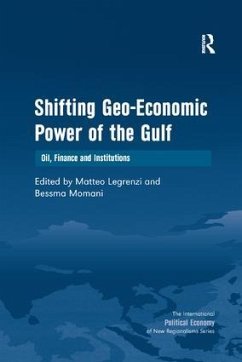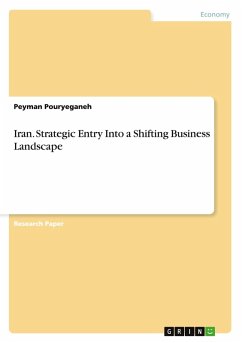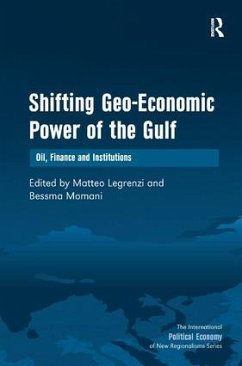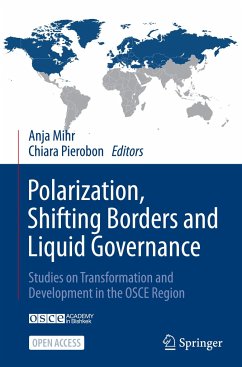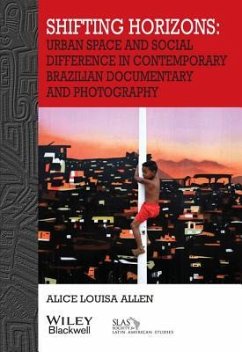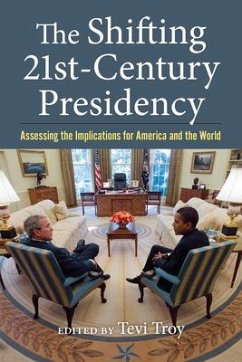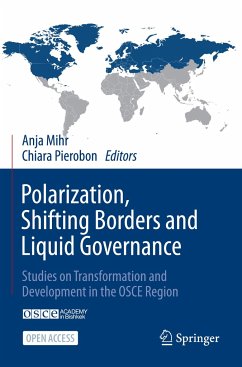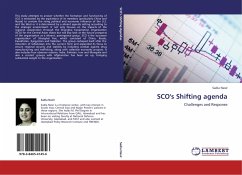
SCO's Shifting agenda
Challenges and Response
Versandkostenfrei!
Versandfertig in 6-10 Tagen
32,99 €
inkl. MwSt.

PAYBACK Punkte
16 °P sammeln!
This study attempts to answer whether the formation and functioning of SCO is motivated by the aspirations of its members (particularly China and Russia) to contain the rising political and economic influence of the U.S. and the West or it is determined by a vibrant agenda setting according to the strategic environment. It not only focuses on the impacts of the regional cooperation through the Shanghai Cooperation Organization (SCO) for the Central Asian states but will also look at the future prospects of the organization as a vibrant, panregional group. SCO is the successor organization of S...
This study attempts to answer whether the formation and functioning of SCO is motivated by the aspirations of its members (particularly China and Russia) to contain the rising political and economic influence of the U.S. and the West or it is determined by a vibrant agenda setting according to the strategic environment. It not only focuses on the impacts of the regional cooperation through the Shanghai Cooperation Organization (SCO) for the Central Asian states but will also look at the future prospects of the organization as a vibrant, panregional group. SCO is the successor organization of Shanghai Five, which consisted of China, Russia, Kazakhstan, Kyrgyzstan and Tajikistan. The group reshaped itself after the induction of Uzbekistan into the current form and expanded its focus to ensure regional security and stability by including combat against drug manufacturing and trafficking, along with collective economic projects. It also includes four observer nations: India, Pakistan, Iran and Mongolia and also a contact groups with Afghanistan has been set up, bringing substantial weight to the organization.



